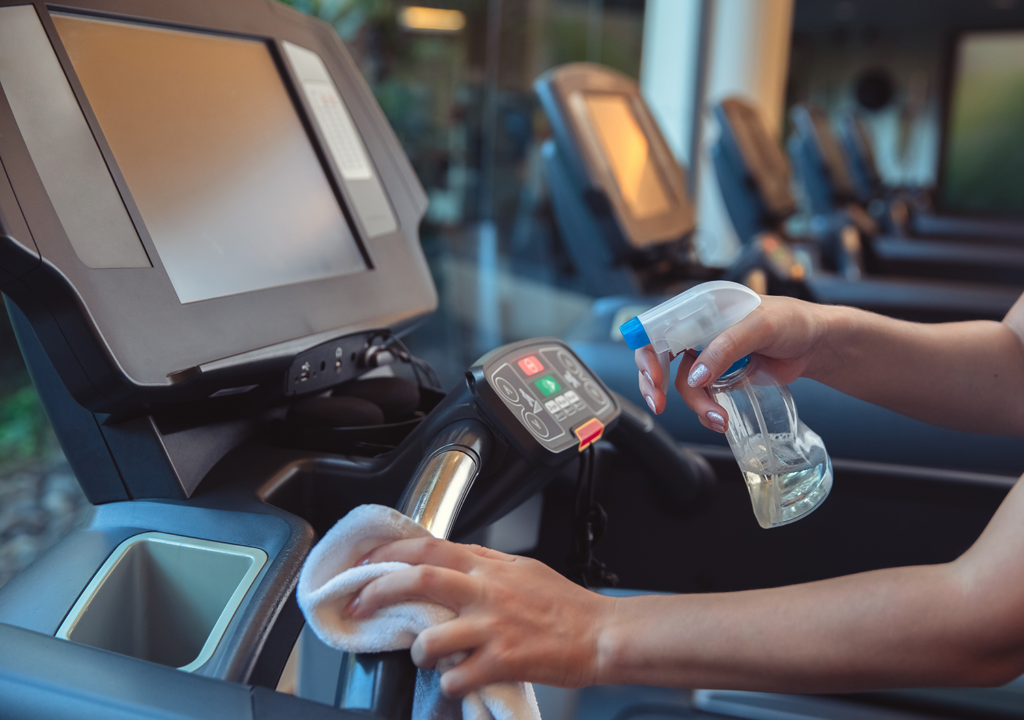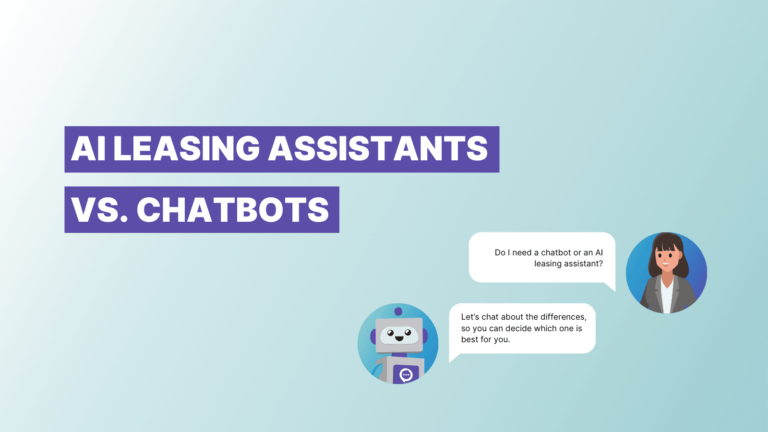As stay-at-home orders are being lifted across the country, apartment communities are navigating how to safely open public spaces while also preventing the spread of COVID-19. While residents and apartment staff are undoubtedly eager for some normalcy, precautions still must be taken.
The safety of residents and employees should be the primary concern as apartment communities open areas like fitness centers, clubhouses and pools. The National Apartment Association has released a set of guidelines on how to safely open office and amenity spaces, which property managers can use to guide their decision-making.
Read on for a summary of best practices for opening apartment community public spaces as outlined by the NAA.
Apartment Fitness Centers
Equipment may need to be reconfigured to ensure proper distancing, and capping the number of people inside your apartment fitness center should be considered. Communities should also consider having every other machine available as well as placing markers on the floor.
Because fitness centers are usually not staffed, apartment communities must rely on residents to sanitize the equipment after using it. To add another layer of protection, communities can close the apartment fitness center for periods of time throughout the day or evening to allow cleaning crews or the maintenance team to thoroughly clean the equipment and floors.
Apartment Swimming Pools
The coronavirus does not survive long in high temperatures and high humidity, and chlorine in pool water can render the virus inactive. Because apartment pool areas are outdoors, there is generally enough room for residents to maintain social distancing.
The pool water is constantly being disinfected by chlorine, but it’s still possible to come into contact with the virus by touching surfaces like door handles, handrails and pool ladders, so these need regular disinfecting. Communities may want to remove some pool furniture or encourage residents to bring their own chairs.
Apartment communities may also want to consider limiting the number of people permitted in the apartment pool area at any given time, and this can be done by allowing residents to select a block of time in advance and book a reservation to use the pool.
Apartment Leasing Offices
Apartment leasing staff should follow local health department protocols as well as guidelines provided by the Centers for Disease Control and Prevention. Apartment community employees should be required to wear masks when interacting with others and ensure that desks and workstations are far enough apart. If possible, limit the number of employees working in the office by staggering shifts or alternating days that they work.
Prospective residents may be allowed in, but the number should be limited depending on the number of employees available to help and the size of the leasing office. Residents and prospects may not be required to wear masks, but should be encouraged to do so. To ensure proper distancing, many companies are continuing to offer apartment self-guided and virtual tours rather than standard in-person apartment tours with a staff member.
Apartment Clubhouses
The virus that causes COVID-19 has not been shown to survive on surfaces for longer than one week, so if your apartment clubhouse has been closed for seven or more days, only routine cleaning is necessary. Property managers should follow local guidelines when it comes to the occupancy of the clubhouse, and they should consider reducing operating hours to allow for proper sanitizing.
The cleaning should be focused on high-touch areas like door handles and light switches, and apartment community staff should have hand sanitizer dispensers available. If possible, open the windows in the apartment clubhouse to improve ventilation and remove things like coffee creamer containers. If you offer food to residents and prospects in the clubhouse, consider only offering pre-packaged foods.
Here are some additional steps property managers can take to ensure that staff and residents are on the same page when it comes to social distancing:
Communicate Clearly
Make sure residents know the rules by posting signs in public areas of your apartment community. This may include signage about face mask requirements, floor markings to ensure proper distancing, and the maximum occupancy allowed in common areas. Special consideration should be made for the apartment fitness center, with signs clearly explaining who is responsible for cleaning equipment. If residents are responsible, the signs should state the location of cleaning products.
Also, keep your residents in the loop by sending emails outlining the rules and updating them as they change. Encourage them to reach out if they have any concerns or questions.
Let Technology Help
Some communities are requiring residents to use a mobile app to book reservations to use amenities, while others are using other platforms to make amenity appointments. Respage just released our Resident Amenity Scheduler which allows residents to reserve their time slot for the pool, fitness center and other shared spaces.
The Resident Amenity Scheduler can be accessed in four ways: through the Respage Chatbot by selecting Current Residents; on apartment community websites by clicking Amenity Scheduling; via a QR code posted at apartment amenity entrances; or through a link posted or sent in an email. The staff can control specific amenity settings like hours of operation and length of the time slot, and residency can be validated through integrations with property management platforms. Authorization codes are also sent with each reservation.
Conclusion
While restrictions are being lifted, staff and residents still need to practice caution to keep infection levels low. These apartment community amenity guidelines can help everyone stay safe, but they should be used in concert with recommendations from health officials and local jurisdictions.
If you would like to schedule a demo of our Resident Amenity Scheduler, contact Respage to set it up!






